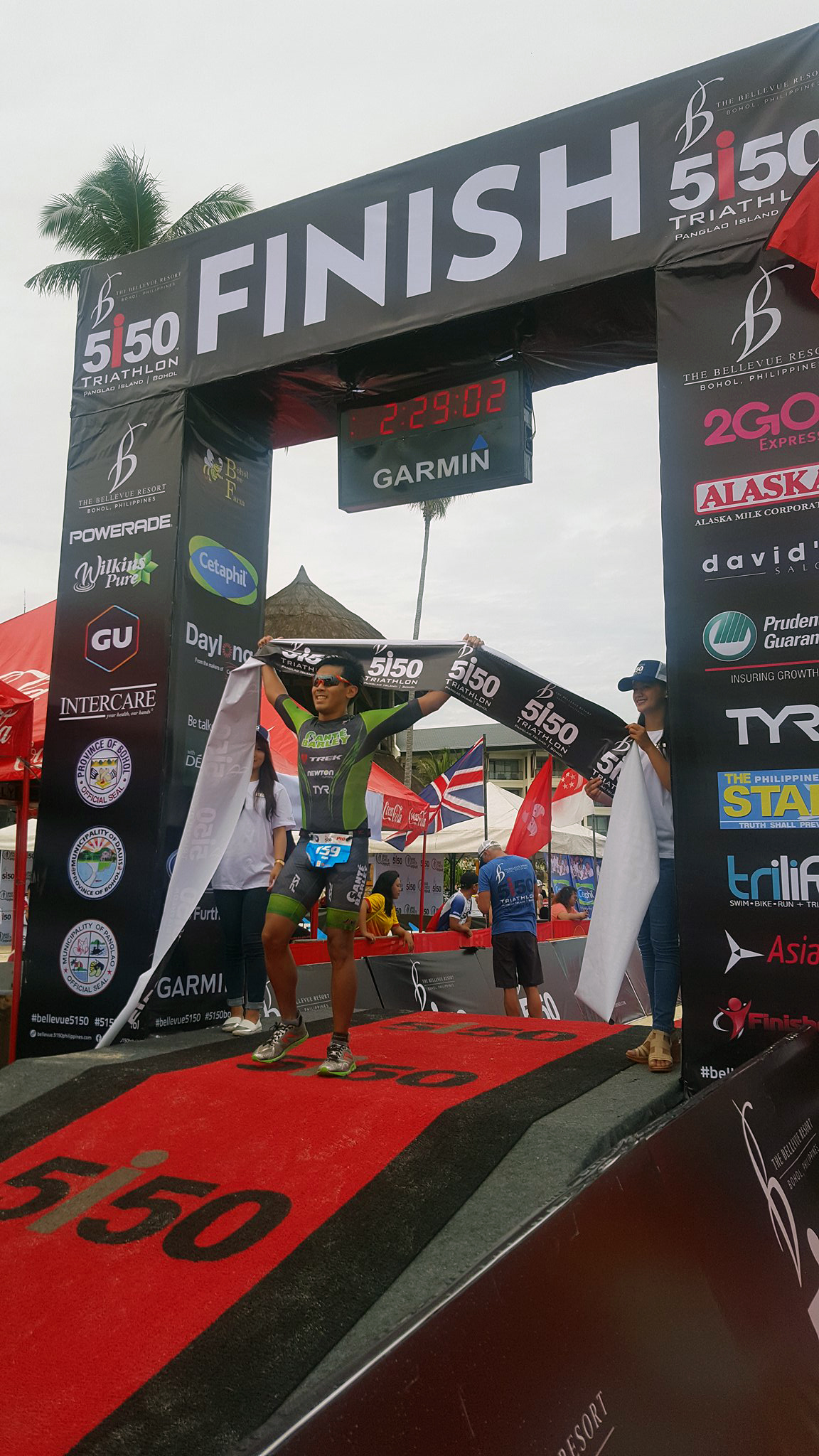Overtraining or taking your training too seriously could lead to your early demise, say these local triathletes
Photos by RUN 4 FFWPU and courtesy of Johanna Cruz (Don Velasco) and Amfabricante (Papoo Reyes)
Training for a triathlon needs serious time and dedication. Long hours are spent on the bike along with consistent training efforts in swimming and biking. Like most things, however, too much of a good thing can be bad, especially when it comes to training.
Newbie and veteran triathletes are both prone to overtraining, which can lead to fatigue and injury. I spoke to two co-triathletes, Don Velasco and Papoo Reyes, who both shared their views on overtraining, its causes, and how to avoid and overcome it.
“It’s like digging a deeper hole for yourself,” Don Velasco says about overtraining, adding that it is usually caused by too much volume/intensity, not enough recovery, or usually a combination of both
Don Velasco is a coach and consistent podium finisher. He cites that overtraining is characterized by a decline in fitness due to over fatigue. Instead of getting stronger because of training, your performance plateaus or even declines. “It’s like digging a deeper hole for yourself,” he says, adding that overtraining is usually caused by too much volume/intensity, not enough recovery, or usually a combination of both.
To address this, start being mindful of the volume/intensity as well as the frequency of training. It’s often best to err on the side of caution. Being undertrained 10 percent is better than being overtrained by five percent. Keep a personal log of your sessions, diet, and sleep. It will allow you to have an objective and unbiased assessment.
It is also best to consider getting a competent, knowledgeable, and experienced coach. “No pain, no gain” is a common mindset that drives one towards overtraining. By having someone with an outside perspective, one can have a smarter approach towards their fitness goals.

Based on Velasco’s experience, this is caused by trying to fit in someone else’s schedule or program. Each person is unique with different needs, schedules, and experiences. A typical one-size-fits-all program usually doesn’t consider such factors. One needs to assess how each person is doing during the course of the training program rather than having them adjust to the program itself.
Keeping track of an athlete can be done via both qualitative (how you’re feeling) and quantitative (speed, HR, power) measures. At the end of the day, coaching is both a science and art. Finding balance between the two can result in huge performance gains and avoidance of overtraining.
Reyes, on the other hand, is an Ironman Melbourne finisher and an ultramarathon trail runner. His ultimate testimony of overtraining was during the inaugural Ironman 70.3 race in Cebu in 2012. His eight months of hard training and lack of recovery knowledge led to a physically and mentally draining race experience.
It made him realize that triathlon is a very scientific sport. It is not just about doing all three disciplines day in and day out. It is about training wisely and avoiding burnout, which can only be achieved with a proper coach and a training program. Regular recovery days should be incorporated with a taper week on the tail end where workouts are shorter and with lesser intensity.
Reyes also adds that it is also important to be aware and to listen to one’s body. Many endurance athletes block off the pain or deny the fact that their bodies call out for rest. Acceptance is key in understanding that all athletes need to take two steps backwards at times to be able achieve the gains of a rigorous training regimen.
Also, be aware of psychological signs of fatigue like depression, irritability, and anxiety. Like in other aspects, work-life-training balance is key; and this includes cutting down on training and getting proper rest and recovery to achieve fitness goals effectively and lead a more healthy and well-rounded life.